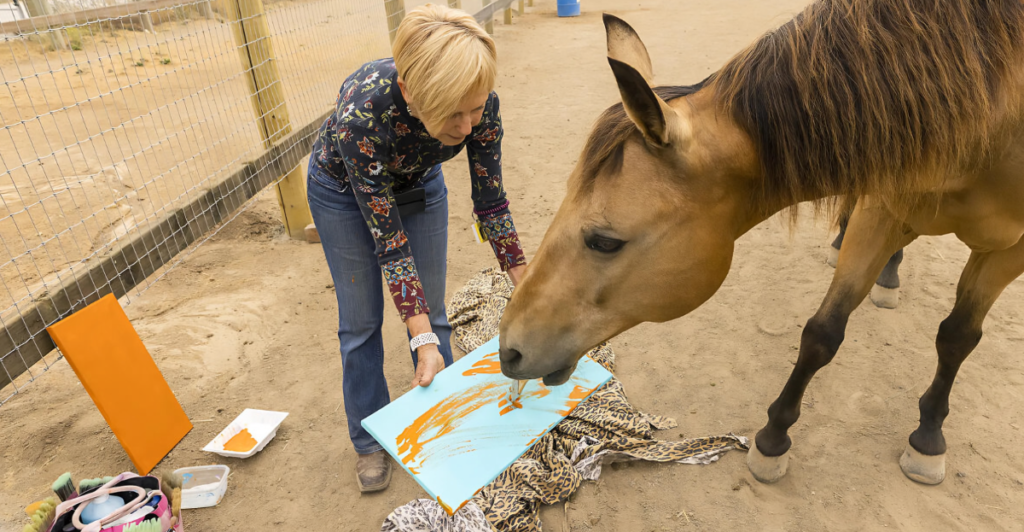
Many riders assume that easy-to-train horses are simply calm or obedient, but new research tells a different story. Horses, often underestimated for their brainpower, show abilities to strategize, problem-solve, and even anticipate future actions.
Breeds typically labeled “beginner-friendly” aren’t just docile—they’re impressively intelligent, picking up on subtle cues with ease. Their quick learning and adaptability make them stand out for riders of all experience levels. As we look at nine of the most intelligent and trainable horse breeds, prepare to rethink everything you thought you knew about what makes a horse “easy” to work with.
These remarkable animals prove that true trainability comes from sharp minds, emotional depth, and a strong partnership with humans. Let’s meet the equine geniuses redefining the art of horsemanship.
1. Arabian Horses—Brilliant Minds, Unbreakable Bonds
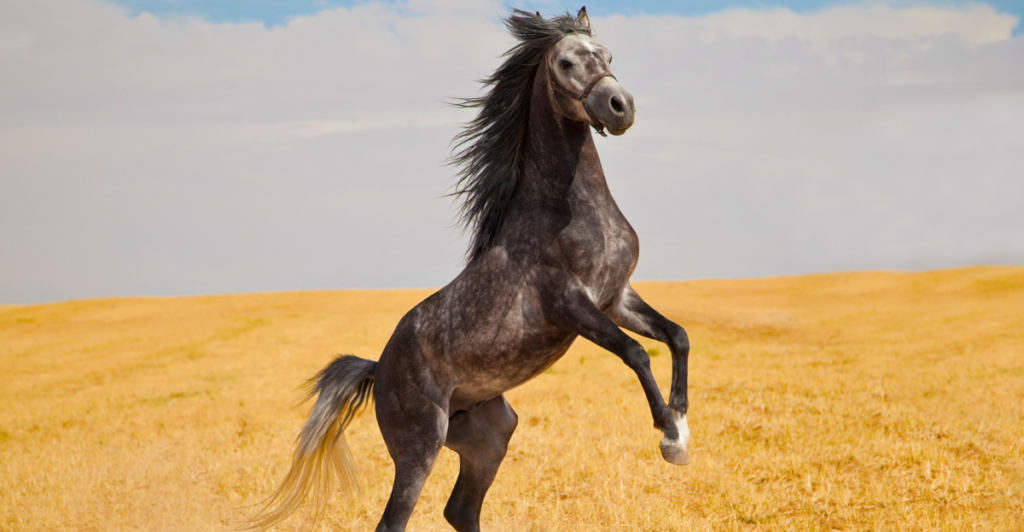
The Arabian is often celebrated as the gold standard of equine intelligence, combining quick learning with a powerful memory and an innate curiosity. Bred for centuries in challenging desert environments, Arabians developed keen problem-solving abilities and a strong affinity for humans.
Their adaptability shines across countless disciplines, from elegant show performances to rugged ranch work. Riders often find that Arabians thrive when given both mental stimulation and emotional connection, responding with remarkable loyalty and enthusiasm. Their reputation for spiritedness stems not from stubbornness but from a sharp mind always searching for engagement.
For those seeking a horse that offers both a challenge and a true partnership, the Arabian remains unmatched. Few breeds forge bonds as deep—or showcase brilliance as naturally—as these enduring legends.
2. Quarter Horses—The Reliable Thinkers of the Ranch
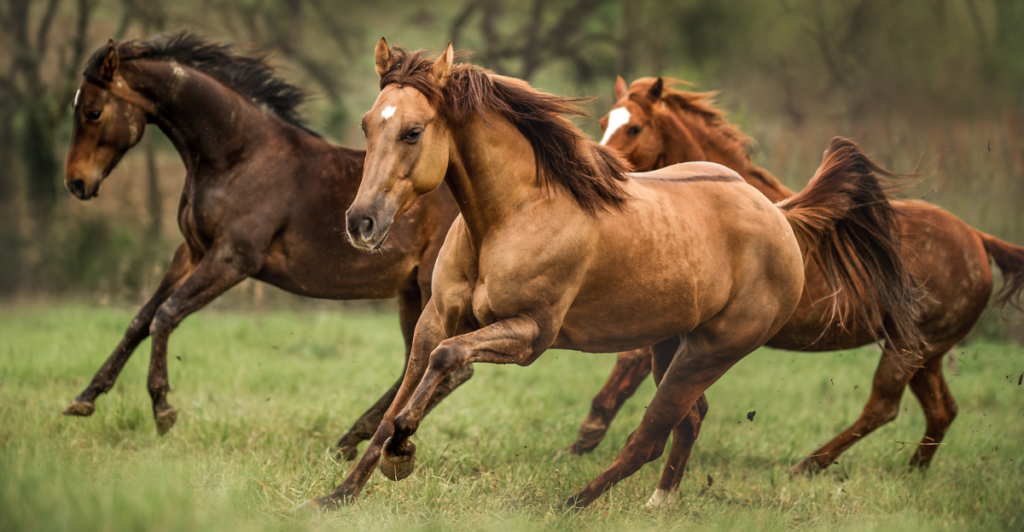
Quarter Horses are often chosen for their dependable nature, but their standout trait is their intelligence. Originally bred for demanding ranch work, these horses quickly master complex tasks and adjust to changing conditions with ease.
Studies show that stock-type horses, especially Quarter Horses, maintain strong focus and sound decision-making under pressure. Their ability to pick up subtle human cues and anticipate commands sets them apart from many other breeds. Far more than just obedient, Quarter Horses exhibit remarkable problem-solving skills and emotional sensitivity, making them ideal companions for both novice and seasoned riders.
Their mental agility and practical intelligence are key reasons they remain America’s favorite all-around working horse. In short, their calmness comes paired with sharp cognitive strength.
3. Morgan Horses—Emotional Savvy Meets Versatility
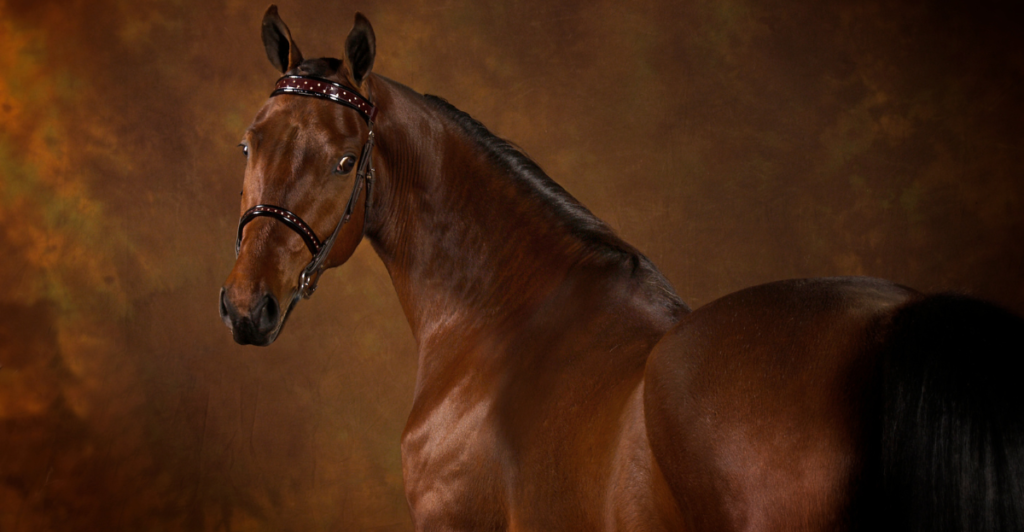
Morgan horses are prized for their versatility and willingness to learn, but their emotional intelligence is an often-overlooked strength. These horses excel at reading human emotions, responding appropriately to shifts in mood and tone. This emotional sensitivity fosters a deep bond between horse and rider, making training sessions smoother and more rewarding.
Morgans thrive across diverse disciplines—whether it’s dressage, trail riding, or endurance competitions—thanks to their sharp memory, innate curiosity, and strong social awareness. Far from being merely cooperative, Morgans demonstrate a profound understanding of their handlers’ intentions and feelings.
Their adaptability stems not from simple compliance but from active engagement with their environment and companions. Morgans challenge assumptions about “easy” horses, proving that empathy and intelligence go hand in hand.
4. Haflingers—Small Horses, Mighty Minds
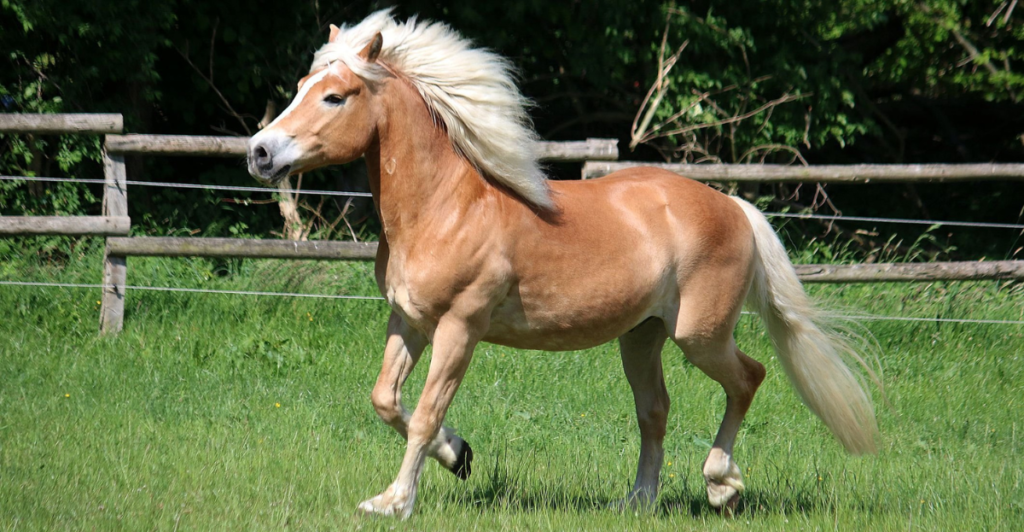
Haflingers are often selected for children and novice riders due to their gentle demeanor, but their cognitive strengths deserve equal praise. These compact horses have exceptional memories and quickly absorb and retain routines. Their calmness masks a sharp mind capable of problem-solving and rapid adaptation to unfamiliar situations.
Haflingers excel in activities that demand both physical and mental agility, thriving under varied conditions. Their composed nature under stress is a direct result of cognitive resilience developed over generations.
Though often seen as merely “cute” or “safe” ponies, Haflingers bring a wealth of intelligence, making them versatile partners for riders of all ages. Their ability to think independently and respond to nuanced cues positions them among the most intelligent small breeds in the equine world.
5. Welsh Ponies—Bright Minds Behind Small Frames
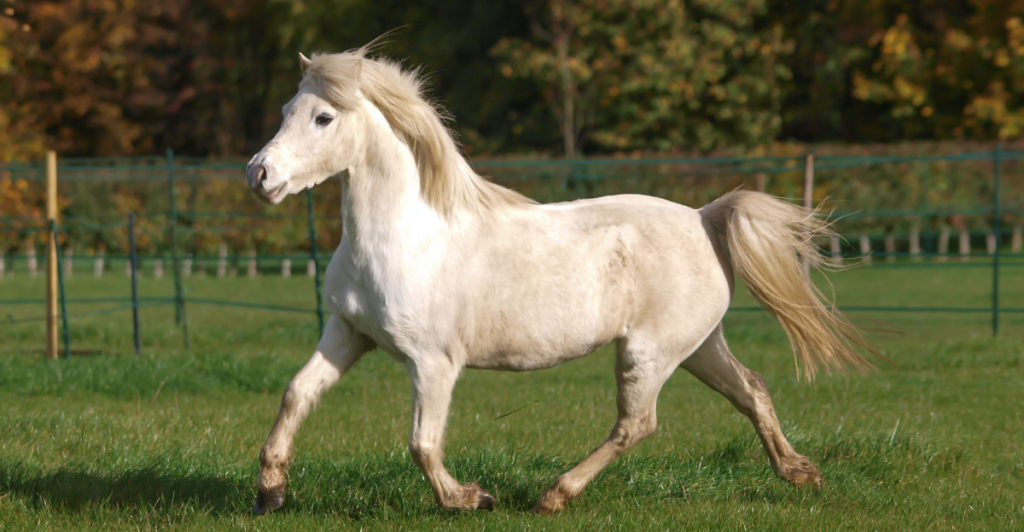
Welsh Ponies are beloved fixtures in youth riding programs, but their intelligence is often underappreciated. These ponies are highly attuned to human behavior and quickly learn complex patterns and commands with minimal repetition.
Their sharp social intelligence fosters strong bonds not just with humans but with fellow horses, helping young riders build confidence and skills more easily. In the show ring, Welsh Ponies shine due to their quick thinking and adaptable nature. Their cognitive abilities make training less about repetition and more about communication and trust.
Though small in size, Welsh Ponies possess a level of mental agility that rivals much larger breeds. They prove that brilliance isn’t measured in height—and that young riders can form extraordinary partnerships with truly exceptional minds.
6. Andalusians—Majestic Minds of the Horse World
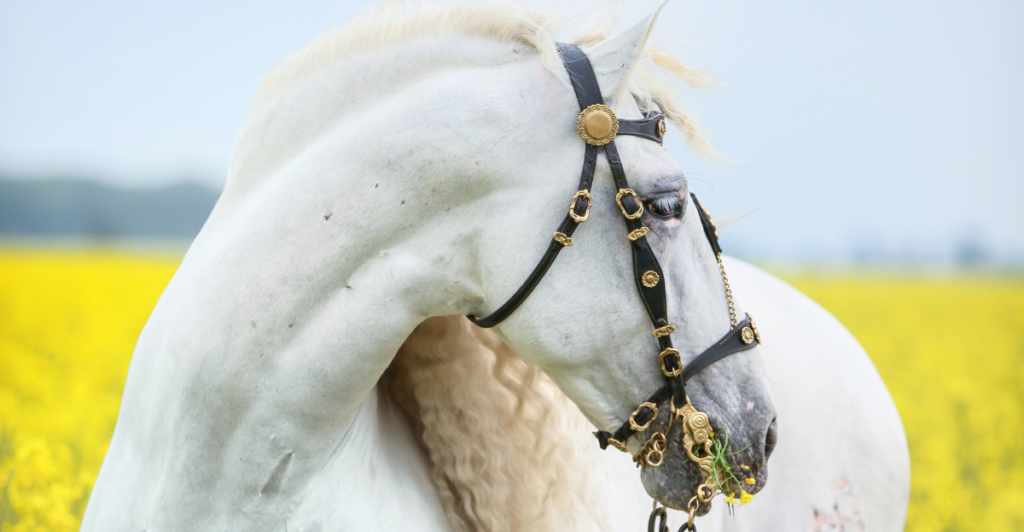
With their proud stature and centuries-old pedigree, Andalusians have long been recognized for their intelligence and grace. Bred on the Iberian Peninsula for warfare and performance, these horses developed keen adaptability and quick thinking to survive and excel.
Today, Andalusians are celebrated for their ability to master intricate movements with few repetitions, making them favorites in classical dressage and modern sport. Their eagerness to learn, combined with deep emotional sensitivity, allows them to form strong, communicative partnerships with riders.
Andalusians balance athleticism with mental acuity, offering a rare blend of beauty, power, and intellect. Their legacy as one of the world’s premier intelligent breeds is well-earned, and riders who seek a thoughtful, quick-learning partner often find their match in these remarkable horses.
7. Appaloosas—Smart, Striking, and Versatile
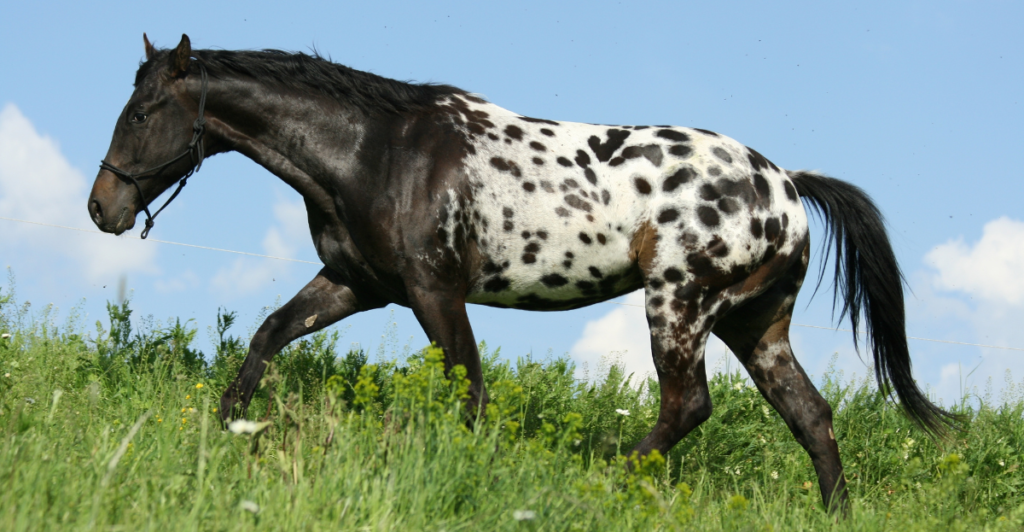
Appaloosas may be best known for their bold, colorful coats, but their cognitive strengths are just as distinctive. These horses quickly adapt across disciplines, mastering skills in trail riding, endurance, and competitive events alike.
Appaloosas possess a strong memory, curiosity, and willingness to work that make them exceptionally trainable partners. Their love of exploration drives them to engage with new environments rather than shy away. While some may mistakenly view “flashy” breeds as high-strung or unpredictable, Appaloosas defy this stereotype with steady intelligence and a loyal disposition.
They prove that a horse can be both stunning and dependable, making them ideal for riders seeking a versatile, mentally sharp companion capable of handling a wide range of challenges with ease.
8. Icelandic Horses—Compact Size, Massive Smarts
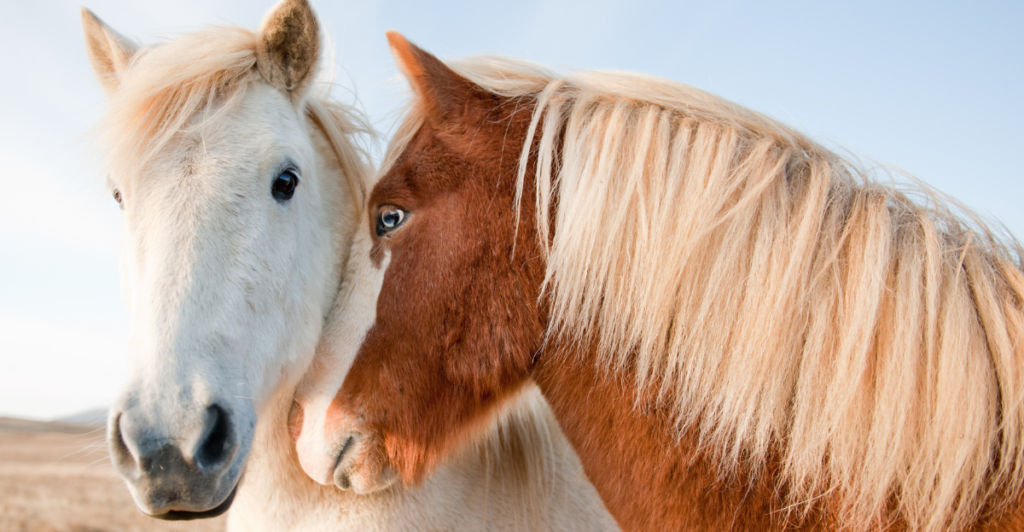
Icelandic Horses are famed for their unique five gaits, but their intelligence is equally impressive. Isolated on their island homeland for centuries, these horses developed keen problem-solving abilities and adaptability. Thanks to generations of selective breeding for mental sharpness and resilience, they are known for mastering new commands quickly and with minimal repetition.
Their friendly, cooperative nature makes them approachable for beginners, while their cognitive flexibility enables them to excel in demanding environments. Whether navigating rocky landscapes or adjusting to varied riding styles, Icelandics show a rare combination of steadiness and mental agility.
Despite their small size, Icelandic horses confidently carry both riders and great expectations. For those seeking a smart, willing partner, they offer both brains and hearts.
9. The Friesian—Grace, Power, and Sharp Intelligence
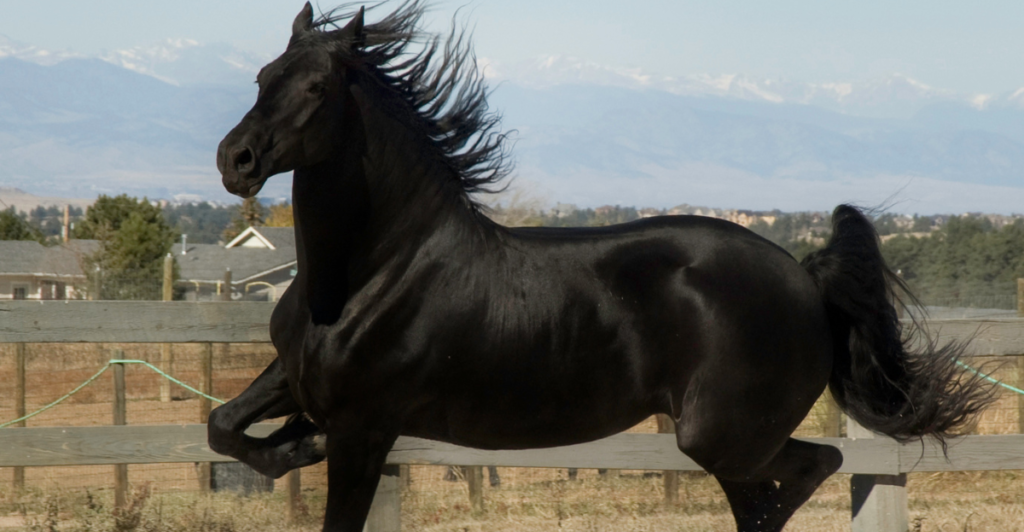
Friesians often turn heads with their striking black coats and flowing manes, but their intelligence and trainability are just as remarkable. Bred originally as war horses, Friesians developed a calm demeanor, fierce loyalty, and a willingness to please that endures today.
Their playful yet gentle personality makes them forgiving partners, especially for riders still honing their skills. Friesians excel equally in riding and driving disciplines, adapting quickly to new tasks and challenges.
Their sharp minds thrive on varied work, forming deep bonds with handlers who approach them patiently and consistently. Behind their regal appearance lies a quick-thinking, eager learner ready to connect, perform, and dazzle both in the show ring and on the trail.
Clever Hans—The Horse Who Changed How We Think
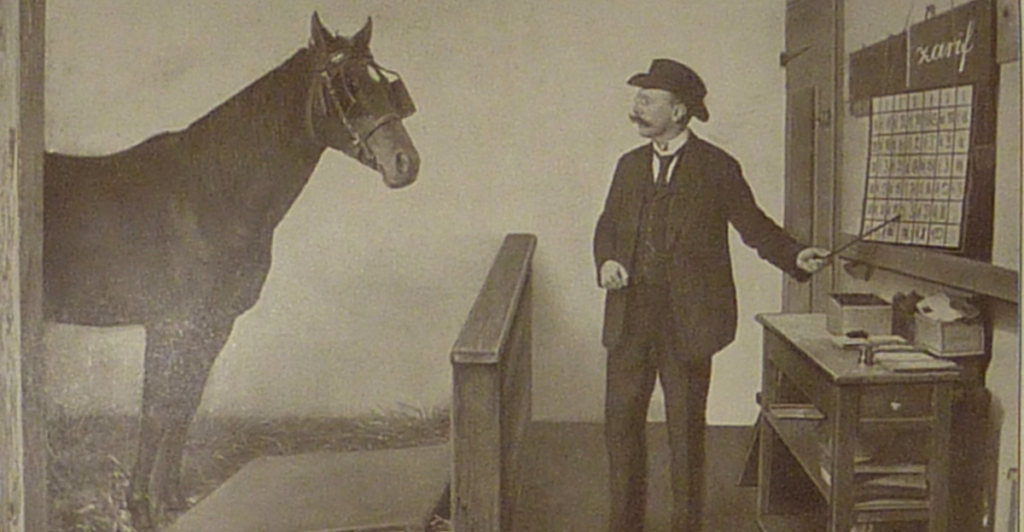
No discussion of intelligent horses is complete without Clever Hans, the Orlov Trotter whose astonishing performances stunned early 20th-century audiences. Hans appeared to solve math problems and answer complex questions, captivating the public.
Later investigations revealed he wasn’t actually “calculating” but was responding to subtle, unintentional cues from observers. Still, the Clever Hans phenomenon revolutionized the study of animal cognition. It proved that horses are extraordinarily perceptive, capable of reading human body language and emotional states far better than previously believed.
Hans’ story remains a pivotal chapter in understanding how animals learn and communicate. His legacy continues to inspire trainers and researchers to look deeper, encouraging a more nuanced, respectful approach to working with these intelligent, sensitive creatures.
Explore more of our trending stories and hit Follow to keep them coming to your feed!

Don’t miss out on more stories like this! Hit the Follow button at the top of this article to stay updated with the latest news. Share your thoughts in the comments—we’d love to hear from you!







